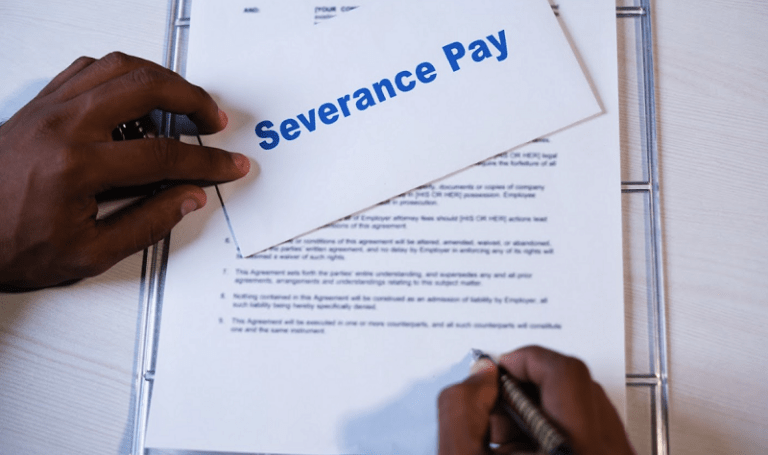We’ve all had those days where we feel frustrated or unfulfilled at work, and the idea of quitting without another secured job offer can seem tempting. While this may offer a sense of freedom and the opportunity to pursue other passions, it also comes with risks and potential downsides.
In this article, we’ll explore the pros and cons of quitting your job without another job lined up, as well as factors to consider before making such a decision. Whether you’re feeling burnt out, seeking a change, or simply exploring your options, it’s important to weigh all the factors before taking the leap.
6 Pros of Quitting Without Another Job Lined Up
While quitting your job without another job prospect in the works may seem like a risky move, it can also offer several benefits. While these benefits can be enticing, it’s important to carefully consider the potential downsides before making a decision.
1. Increased Freedom and Flexibility
One of the most appealing aspects of quitting without another confirmed job offer is the freedom it offers. You’ll have more control over your schedule, and won’t be tied to the demands of a particular employer. This can be especially beneficial if you’re feeling burnt out or unfulfilled in your current role.
2. Opportunity to Pursue Passions or Start a Business
Without the constraints of a full-time job, you’ll have more time and energy to pursue other interests or start your own business. This can be a great opportunity to explore new career paths or hobbies that you’re passionate about.
3. Time to Reflect on Career Goals and Priorities
Taking time off from work can also offer an opportunity to reflect on your career goals and priorities. You can take stock of your skills, interests, and values, and explore new options that align with your vision for the future.
4. Personal Growth and Self-Discovery
Leaving your current job without another one in sight can be a catalyst for personal growth and self-discovery. It allows you the space and time to explore your passions, interests, and strengths, which can lead to a better understanding of yourself and what you truly want in a career.
5. Break from Toxic or Unfulfilling Work Environments
If you’re working in a toxic or unfulfilling work environment, quitting without another job lined up can provide relief from the stress and negativity. It can give you the chance to prioritize your mental and emotional well-being, allowing you to recharge and regain a sense of balance.
6. Pursuit of Work-Life Balance
Quitting your job without alternative employment options can also be a step towards achieving a better work-life balance. It gives you the opportunity to reassess your priorities and find a career path that aligns with your desired lifestyle, whether it’s more flexibility, reduced hours, or pursuing remote work opportunities.
6 Cons of Quitting Without Another Job Lined Up
While quitting your job without securing another job can offer certain benefits, it also comes with risks and potential downsides. While these cons may seem daunting, it’s important to remember that they may not apply to everyone. Before making any decisions, consider your individual circumstances and weigh the potential risks against the benefits.
1. Financial Instability and Stress
One of the biggest risks of quitting without another job in the wings is the financial instability and stress that can come with it. Without a steady income, it can be difficult to cover basic expenses like rent, bills, and food. This can lead to stress, anxiety, and even debt.
2. Potential Gaps in Employment History
Quitting your job without another one in sight can also lead to gaps in your employment history. This can be a red flag for future employers, who may wonder why you left your previous job without having an offer from a new job. It can also make it more difficult to secure a new job in the future.
3. Limited Bargaining Power in Future Job Searches
Leaving your job without another one lined up can also put you in a weaker bargaining position when it comes to future job searches. You may feel pressure to accept the first job offer that comes your way, even if it’s not the best fit for your skills or goals.
4. Strained Professional Relationships
Quitting your job without securing another one can also strain professional relationships with your current employer and colleagues. This can be especially true if you leave without giving proper notice or if you’re leaving a critical project unfinished.
5. Potential Impact on Mental Health
Job loss and financial stress can have a significant impact on mental health. Quitting your job without a confirmed employment prospect can lead to feelings of uncertainty, anxiety, and depression, especially if you’re struggling to make ends meet.
6. Limited Access to Benefits and Resources
When you leave your job, you may also lose access to benefits and resources provided by your employer, such as health insurance, retirement plans, and professional development opportunities. This can make it more difficult to maintain your financial stability and career growth.
Factors to Consider Before Quitting
Before making the decision to quit your job without another work option in place, it’s important to carefully consider your individual circumstances and priorities. By carefully weighing these factors, you can make a more informed decision about whether quitting your job without another one lined up is the right choice for you.
Personal Financial Situation
Your personal financial situation should be a key factor in your decision. Consider your savings, expenses, and any outstanding debts or financial obligations. Determine how long you can realistically go without a steady income and whether you have any alternative sources of income or financial support.
Career Goals and Priorities
Think about your long-term career goals and priorities. Consider whether leaving your job without another one lined up aligns with those goals, or if there are other steps you can take to achieve them. Reflect on your skills, interests, and values, and explore potential career paths that align with them.
Job Market and Industry Trends
Research the job market and industry trends in your field. Determine whether there are opportunities available that align with your skills and goals and whether leaving your job now or later would put you in a better position to secure those opportunities.
Personal Circumstances
Consider any personal circumstances that may impact your decision, such as family responsibilities, health concerns, or other life events. Determine whether leaving your job without another one lined up would be feasible or advisable given these circumstances.
Alternatives to Quitting Without Securing A New Job
Quitting your job without an alternative employment option available can be a risky move, but there are alternatives to consider. By exploring these options, you can make a more informed decision about your career path and take steps toward achieving your goals.
Negotiate a Leave of Absence or Reduced Hours
If you’re feeling burnt out or overwhelmed, consider negotiating a leave of absence or reduced hours with your employer. This can give you the time and space you need to recharge and reflect on your career goals and priorities.
Exploring Other Job Opportunities While Still Employed
While you’re still employed, take the time to explore other job opportunities that align with your skills and interests. You can update your resume, network with colleagues and industry professionals, and apply for jobs that appeal to you.
Pursuing Education or Training to Enhance Career Prospects
Consider pursuing education or training to enhance your career prospects. This can include taking courses, attending workshops, or pursuing a degree or certification in your field. This can make you a more competitive candidate in future job searches and improve your long-term career prospects.
Start a side hustle or freelance work
Consider starting a side hustle or freelance work while you’re still employed. This can provide additional income and help you build skills and experience that can be valuable in future job searches.
Take a Sabbatical or Extended Break
If you’re feeling burnt out or overwhelmed, consider taking a sabbatical or extended break from work. This can give you the time and space you need to recharge and reflect on your career goals and priorities.
Seek Support From a Career Counselor or Coach
Consider seeking support from a career counselor or coach who can help you explore your career options and develop a plan for achieving your goals.
Key Takeaways
Quitting your job without another one lined up can be a tempting option when you’re feeling burnt out or unfulfilled at work. While it can offer certain benefits, such as increased freedom and flexibility, it also comes with risks and potential downsides, such as financial instability and gaps in employment history. Before making any decisions, it’s important to carefully consider your individual circumstances and priorities, and explore alternatives to quitting, such as negotiating a leave of absence or pursuing education or training.
Remember, there is no one-size-fits-all solution when it comes to career decisions. What works for one person may not work for another. By weighing the potential risks and benefits and exploring all of your options, you can make a more informed decision about your career path and take steps toward achieving your goals. Whatever you decide, trust yourself and have confidence in your ability to navigate the challenges and opportunities that lie ahead.
When you are ready to begin your job search we can help. Find My Profession offers professional resume writing and reverse recruiting services. Our certified resume writers will create a high-quality, ATS-friendly resume personalized for your job search. Our reverse recruiters will help manage your job search to save you time and provide their job search expertise.




